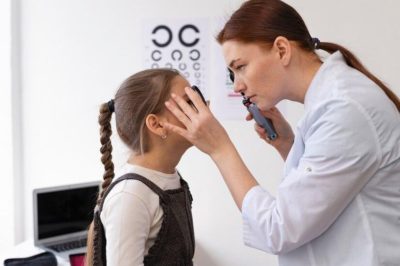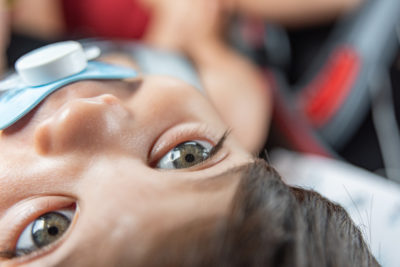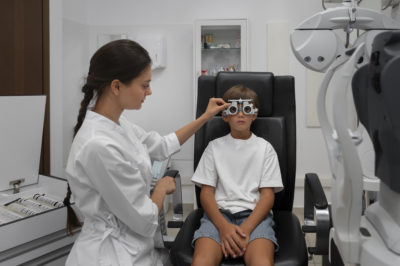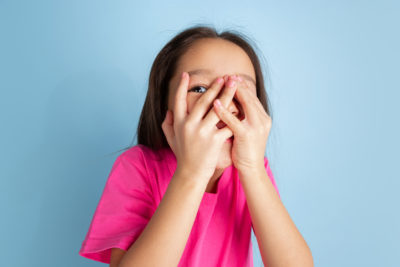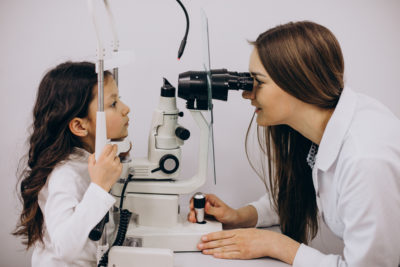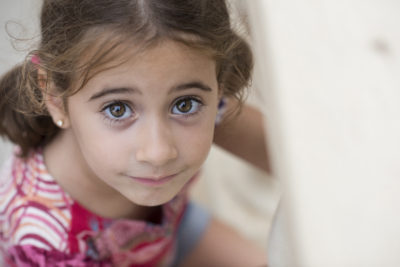As parents, we strive to give our children the best start in life, from nutrition to education. But eye health is a vital component that is frequently disregarded. A child’s ability to see has a direct impact on their growth, learning, play, and interaction with the outside world. In order to guarantee that youngsters have the finest vision possible and lay the groundwork for a bright future, routine eye exams are crucial. We will discuss the benefits of routine eye exams for kids in this blog, including how they can significantly improve their general health.
The Role of Vision in Child Development
An important aspect of a child’s growth is their vision. Children use their vision to comprehend and investigate their environment from the minute they open their eyes. Clear vision is necessary for:
-
Learning and Education
Children receive visual presentations for about 80% of the material they study in school. Low vision can make it difficult to write, read, and comprehend visual aids, which can make academic success challenging.
-
Physical Coordination
Motor abilities and coordination depend heavily on vision. Children rely on their eyes to guide them when riding a bicycle or catching a ball, which can impede their academic achievement.
-
Social Interaction
Body language and facial emotions are examples of visual clues that are essential to good communication. Children who have visual impairments could find it difficult to interpret these signs, which could hinder their socialization.
Common Vision Problems in Children
Youngsters may have a range of visual issues, some of which parents or educators may not notice right away. These are a few typical problems:
1. Refractive Errors
These include astigmatism, farsightedness (hyperopia), and nearsightedness (myopia). Children who have refractive problems may experience fuzzy vision and difficulty seeing properly at certain distances.
2. Strabismus (Crossed Eyes)
Strabismus disorder is brought on by improper eye alignment. If left untreated, it may impair depth perception and cause additional vision issues.
3. Amblyopia (Lazy Eye)
When one eye grows weaker than the other, amblyopia develops. Because treatment is most effective when received in childhood, early identification is essential.
4. Color Blindness
Learning and interacting with the environment can be impacted when a child has trouble differentiating between certain colors.
Signs Your Child May Need an Eye Check-Up
While some vision issues have clear symptoms, others may have less noticeable ones. Parents need to be aware of the following symptoms, which could point to a visual issue:
- Frequent squinting or blinking
- Tilting the head to see better
- Covering one eye
- Complaints of headaches or eye pain
- Difficulty reading or holding books very close
- Trouble focusing on distant objects
- Rubbing eyes excessively
- Poor hand-eye coordination
- Avoiding activities that require near vision, such as reading, or distance vision, such as playing ball
The Benefits of Regular Eye Check-Ups
Children who get regular eye exams benefit greatly from having as clear and effective eyesight as possible. The following are some of the main benefits:
- Early Problem Detection: Eye exams can identify problems that are not immediately apparent. Prompt action can stop issues from getting worse and lower the chance of permanent vision loss.
- Better Academic Results: Students who have good vision are more likely to do well in school. Eye exams can detect visual issues that could interfere with learning and enable prompt repair.
- Enhanced Social Skills and Confidence: A child’s confidence and capacity to engage with peers can both be enhanced by having clear vision. Improving social connections and general pleasure can result from addressing vision-related difficulties.
- Prevention of Severe Conditions: If early issues are not addressed, more serious eye conditions may emerge. This is why routine examinations are important.
When Should Children Have Their Eyes Checked?
The first thorough eye examination for children should happen no later than six months of age, according to the American Optometric Association. Additional tests are to be carried out at age three, prior to starting school, and then once a year after that. Like pediatrician appointments, these tests ought to be a regular part of a child’s healthcare regimen.
Here are some Essential Eye Safety Tips for Your Child, Expert Advice from Dr. Sakshi Lalwani:
What to Expect During a Child’s Eye Exam
An eye checkup for a youngster should be a pleasant and stress-free experience. What parents and kids can anticipate from a normal exam is as follows:
- Case History: The optometrist will enquire about the kid’s health, any symptoms or worries that the parents or child may have, as well as the family medical history.
- Testing for vision: This includes measures of a child’s visual acuity, which gauges how well they see at various distances.
- Eye Alignment and Movement: The physician will examine the alignment and function of the eyes.
- Eye Health Evaluation: The optometrist will assess the condition of the eyes, including the retina and optic nerve, using a variety of instruments.
- Refractive Assessment: The doctor will determine whether the child has any refractive errors, such as nearsightedness or farsightedness.
Tips for Parents to Support Eye Health
Apart from scheduling routine eye exams, parents can adopt the following actions to promote their kids’ eye health:
- Promote Outdoor Play: Research has shown that time spent outside lowers the chance of acquiring myopia, or nearsightedness.
- Limit Screen Time: Digital eye strain may result from too much screen time. Make sure screens are placed at a suitable distance from the eyes and promote frequent pauses.
- Maintain a Balanced Diet: Elements that are good for the eyes include lutein, omega-3 fatty acids, and vitamin A. Make sure your youngster eats a diet rich in fruits, vegetables, and seafood.
- Educate Children on Eye Safety: Make sure kids understand the value of donning safety goggles when playing sports and engaging in other activities that could endanger their eyes.
Upholding a child’s general health and wellbeing requires routine eye exams. We can promote their learning, growth, and pleasure by making sure their vision is sound. Give your child the tools they need to see the world clearly and confidently by making eye checkups a top priority. Our staff at Dr Agarwals Eye Hospital is committed to giving kids the finest vision possible for a bright future by offering them comprehensive eye treatment.

